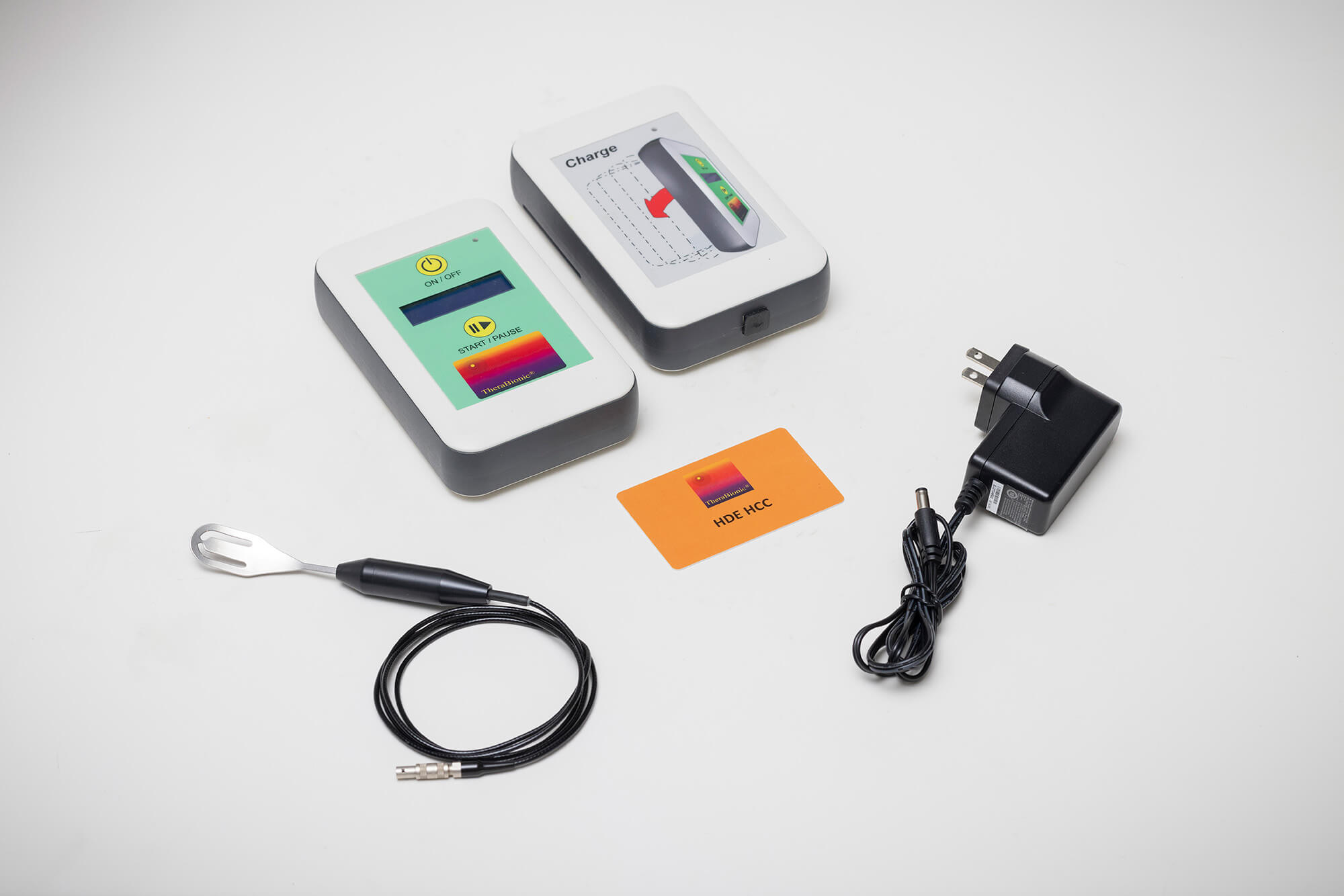
“This new treatment offers additional hope, extended life, and minimal side effects to patients with incurable cancer,” said Boris Pasche, M.D., Ph.D., FACP, president and CEO of Karmanos, chair of the Department of Oncology at Wayne State University, and co-inventor of the TheraBionic P1 device. “Having this treatment finally come to market makes a meaningful difference in how we treat this disease and help our patients continue their lives.”
Dr. Pasche is a renowned medical oncologist specializing in treating gastrointestinal malignancies and hereditary cancer. His research focuses on cancer susceptibility and new therapies.
With the Therabionic P1 device, liver cancer frequencies are recognized by receptors on the liver cancer cells, transforming these frequency signals into growth arrest, making them solely effective in treating liver cancer. However, these same frequencies would not work for breast cancer tumors, and the reverse is also true. The radiofrequency levels delivered during treatment are lower than those generated by cellular phones when held close to the body.
HCC accounts for approximately 90% of all liver cancers, with average survival rates between 6 and 20 months. Patients with advanced hepatocellular carcinoma who fail first- and second-line therapies often have severely impaired liver function, with many patients needing to enter hospice care, so additional treatment options were previously limited or nonexistent. Multiple studies over two decades have shown using the TheraBionic P1 device resulted in tumor shrinkage, blocked new cancer cell growth, and increased overall survival rates. According to TheraBionic, Inc., patients undergoing treatment in these studies did not experience debilitating side effects associated with other cancer-fighting therapies, including loss of appetite, diarrhea, and irritation of the palms and soles.
A Patient and Caregiver’s Experience
Robert Perrier’s case highlights the benefits of TheraBionic P1 therapy in treating HCC. Diagnosed in January 2011, he experienced recurrence after surgery and subsequent failed treatments. Perrier began using the P1 device in September 2011 alongside oral chemotherapy, which his physician discontinued two years later due to side effects. From then until he died in 2017, he only received treatments from the P1 device, living nearly six years post-diagnosis. He passed away from kidney failure after declining dialysis following complications from a hip fracture.
His wife attributes her husband’s additional years to using the device.
“…the TheraBionic device has provided my husband several additional years of life,” said Eveline Perrier. “I hope that other patients will be able to benefit from the device in the future.”
“I often think about my patients in the past who would have benefited in having more time with their loved ones if this device was available, which is why I am excited we can prescribe it to patients,” said Anthony Shields, M.D., Ph.D., medical oncologist and member of the Gastrointestinal and Neuroendocrine Oncology Multidisciplinary Team (MDT) at Karmanos. “As oncologists who treat gastrointestinal cancers, we often face some of the most incurable diseases. Our team is excited to be able to offer our patients another option in the fight, which is why patients come to Karmanos.”
Learn More About the P1 Device
Advanced HCC patients and their caregivers may learn more about the P1 device and schedule a second opinion with a medical oncologist on the Karmanos Gastrointestinal and Neuroendocrine Oncology MDT by visiting karmanos.org/therabionic or calling 1-800-KARMANOS. Prescribing physicians are Wasif Saif, M.D., MBBS, medical oncologist and co-leader of the Gastrointestinal and Neuroendocrine Oncology MDT, Najeeb Al Hallak, M.D., MS, medical oncologist and Gastrointestinal and Neuroendocrine Oncology MDT, and Dr. Shields.
About Liver Cancer
According to the American Cancer Society (ACS), liver cancer diagnoses have been on the rise since 1980, with liver cancer incidence rates tripling and deaths from liver cancer doubling. ACS estimated that in 2024, more than 41,000 people in the U.S. were diagnosed with liver cancer, and nearly 30,000 patients have passed away from the disease.
Liver Cancer Treatment at Karmanos
At Karmanos, liver cancer is treated by the Gastrointestinal and Neuroendocrine Oncology MDT, which includes surgical, medical, and radiation oncologists; interventional radiologists; pathologists; specialized nurse practitioners; dietitians; social workers; and genetic counselors. The team focuses entirely on treating gastrointestinal cancers and shares its collective expertise. Each patient receives a carefully constructed treatment plan designed to achieve the best possible outcome.